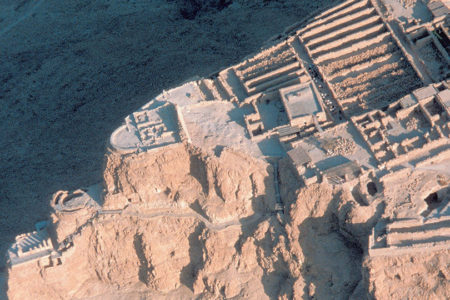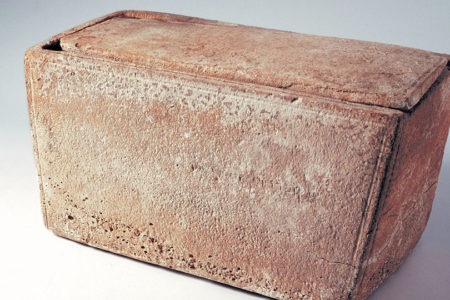The Seeker Part One
King Solomon spoke three thousand proverbs and fifteen hundred songs (1 Ki. 4:32). The epitome of the philosopher-king, he was unequaled in wealth and wisdom, and his fame spread throughout the world. He ruled during Israel’s golden age—when the Jewish people lived peacefully in their own land, the Lord’s presence dwelled in the Temple in Jerusalem, and the Gentiles paid homage to the son of David.
Among those who traveled far to visit the Jewish king was a Gentile woman who has fueled the imaginations of nations, historians, and filmmakers alike.
Although some people refer to her as Sheba, Scripture never tells us her name. Jesus called her the “queen of the south” (Mt. 12:42).
The Arabs call her Balqis. The Ethiopians call her Makeda and claim the land of Sheba is Ethiopia. From the thirteenth century on, they contended their dynasty descended from a child Makeda had with Solomon. Emperor Haile Selassie I, who was deposed in 1974 and died in 1975, claimed direct descent from Solomon and even incorporated that declaration into Ethiopia’s constitution in 1955.1
Even the Qur’an speaks of her. Written in the seventh century A.D.—approximately one thousand years after 1 Kings and 2 Chronicles were written—it pits the queen of “Saba” in a battle of wits against Solomon, a worshiper of Allah. Solomon demands the queen’s throne be brought to him and threatens her ambassadors with war and humiliation. She eventually appears before him and converts to Islam: “I do (now) submit (in Islam) with Solomon, to the Lord of the Worlds” (surah 27:44).
The Bible, of course, tells it much differently:
And when the queen of Sheba heard of the fame of Solomon concerning the name of the LORD [Jehovah], she came to test him with hard questions. And she came to Jerusalem with a very great train, with camels that bore spices, and very much gold, and precious stones; and …she talked with him of all that was in her heart (1 Ki. 10:1–2; cf. 2 Chr. 9:1).
Some commentators say the queen of Sheba was no different than other dignitaries who came seeking trade and military alliances with the powerful Jewish king. But that position seems unlikely because, of all those who visited Solomon, only this woman’s story appears in God’s Word. And almost one thousand years later, it was her visit alone that Jesus referred to when He spoke to the Pharisees (Mt. 12:42). Evidently, she came seeking much more than a treaty. And the likes of the pilgrimage she made will not be seen again until the Messiah returns.
The queen of Sheba went to Jerusalem when Solomon probably was in his prime. He had ascended the throne in 971 B.C. at about age twenty2 and spent twenty years building the Temple and palace (1 Ki. 9:10). The Temple took seven years; the palace, thirteen (1 Ki. 6:38—7:1). It appears they were finished when the queen arrived (1 Ki. 10:4–5), yet the navy of King Hiram of Lebanon still brought “almug trees” (sandalwood) that Solomon used for both (v. 12).
The unparalleled splendor of these buildings and Solomon’s immense wealth astounded her. Yet she was relatively wealthy herself. She had traveled 1,200 miles from southern Arabia, probably Yemen,3 with a vast retinue of camels and servants of her own. And she brought an enormous quantity of expensive spices and precious stones, along with gold worth approximately $3.5 million, to give to Solomon as gifts.4 Although she was deeply impressed with Solomon’s riches, they were not her main interest.
Jesus said, “She came from the farthest parts of the earth to hear the wisdom of Solomon” (Mt. 12:42). She asked him “hard questions” (1 Ki. 10:1) and “talked [communed] with him of all that was in her heart” (v. 2). And Solomon answered her.
Solomon’s knowledge obviously was immense. First Kings said he spoke of trees, beasts, fowl, creeping things, and fish (4:33) and apparently had an understanding of subjects people today pay thousands of dollars to study in universities.
But God gave him more than clinical knowledge. He gave him the ability to apply such knowledge to practical, everyday life, as seen in the book of Proverbs. Furthermore, God gave him the wisdom and understanding of heart to be a just, righteous ruler of God’s people. Scripture says repeatedly, “The wisdom of God was in him, to do justice” (1 Ki. 3:28; cf. 1 Ki. 3:9, 11).
Whatever the queen asked, Solomon answered: “There was not any thing hidden from the king, which he told her not” (1 Ki. 10:3). He spoke with her heart to heart.
In the end the queen had a profound epiphany. She recognized that Solomon’s wisdom came from Jehovah and that a leader who rules with justice and righteousness is a blessing to his nation: “Blessed be the LORD thy God,” she said, “who delighted in thee, to set thee on the throne of Israel. Because the LORD loved Israel forever, therefore made he thee king, to execute justice and righteousness” (1 Ki. 10:9).
Justice and righteousness are of incalculable value in God’s sight. In a world that calls good “evil” and evil “good,” it is easy to forget that God says, “Righteousness exalteth a nation, but sin is a reproach to any people” (Prov. 14:34). The queen of the south was a picture of someone who sincerely sought wisdom and valued righteousness and justice. Yet she was a picture of something else as well.
ENDNOTES
- “Queen of Sheba,” [www.Africana.com/Articles/ tt_261.htm], Microsoft ® Encarta ®, 1999–2000.
- Charles C. Ryrie, The Ryrie Study Bible (Chicago: Moody Press, 1985), 517, n. 1 Ki. 3:7.
- Thomas L. Constable, “1 Kings,” in The Bible Knowledge Commentary, John F. Walvoord and Roy B. Zuck, eds. (Wheaton, Ill.: Victor Books, 1985), 507.







